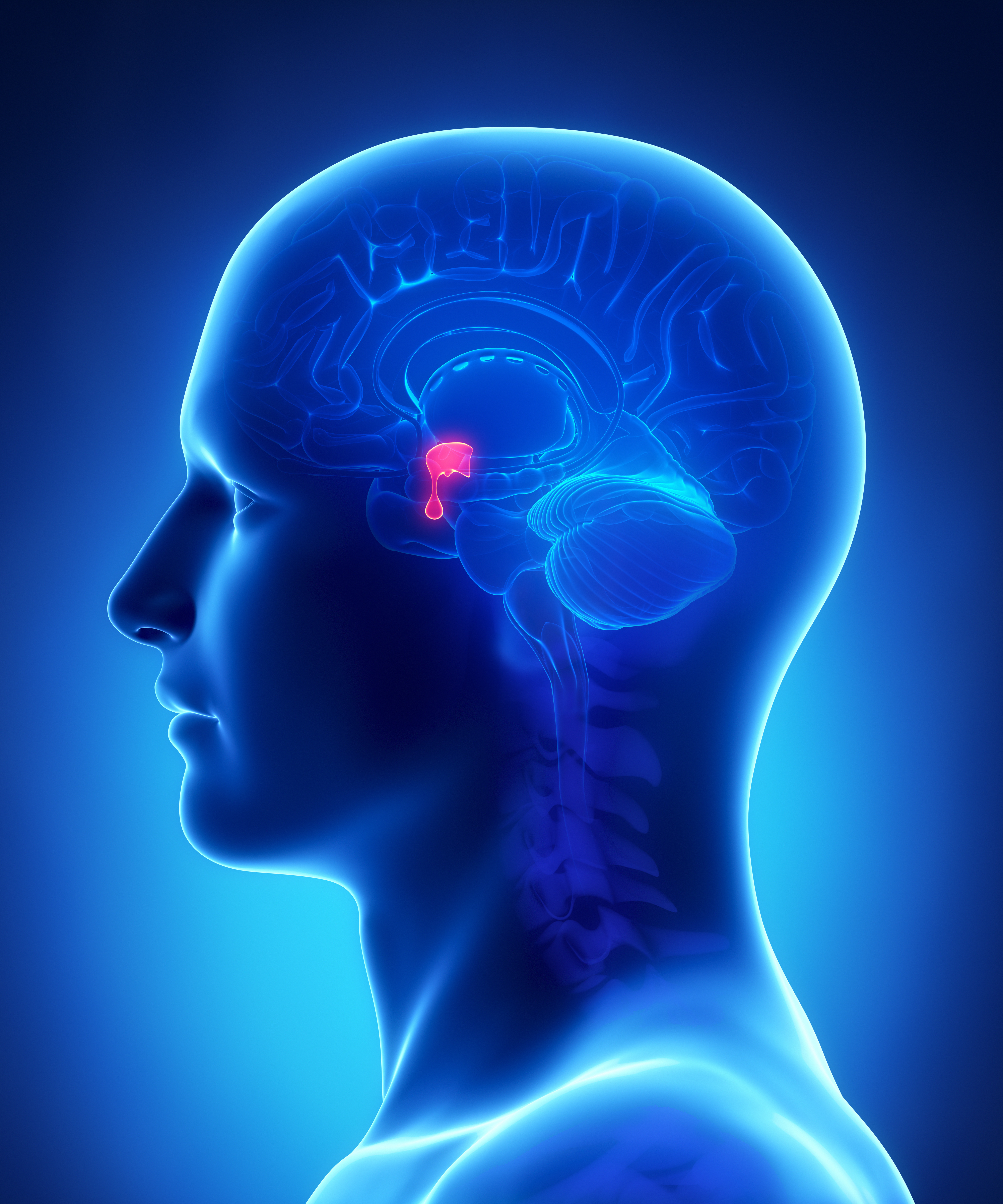Pituitary disorder
Symptoms and causes
Symptoms and causes
What is it?
The pituitary gland is a small gland in the brain that controls various hormone systems in your body. To examine the function of the pituitary gland, a blood sample (usually in the early morning) and sometimes an MRI scan of the pituitary gland is required.
Which problems can arise?
Hypophysical macro-adenoma
A pituitary macro-adenoma is a (usually) benign tumour larger than 1 cm in the pituitary gland. The pressure exerted by the tumour on the structures around the pituitary gland can disrupt the various hormonal axes. The tumour can also cause headaches or poor vision.
A pituitary macro-adenoma can be treated either with medication or surgically.
Hypophysical micro-adenoma
A pituitary macro-adenoma is a (usually) benign tumour larger than 1 cm. It is often detected by chance, for example, during a brain scan performed for other reasons. Micro-adenomas do not always cause symptoms. Some of them cause too much of a given hormone (e.g. prolactine).
Hypophysical microadenomas do not always need to be treated. If that is the case, of course, they are followed up with regular imaging of the pituitary gland. Sometimes, after some time, imaging is no longer necessary.
Hypofysary insufficiency (hypopituitarism)
.
With pituitary insufficiency, some (or all) of the functions of the pituitary gland do not work, resulting in deficiency of a particular hormone in your body. Medication (usually taken orally, sometimes through an injection) is required to compensate for these shortages. Without medication, life-threatening situations (such as Addison crisis) can arise.
Diabetes insipidus
Diabetes insipidus is a condition in which the kidneys do not retain enough fluid. This is due to a lack of the antidiuretic hormone (or vasopressin), a hormone secreted by the pituitary gland. People who have diabetes insipidus urinate very frequently and are thirsty all the time, even if they drink a lot.
Diabetes insipidus is not to be confused with diabetes mellitus, another condition that causes the patient to be thirsty and urinate often. In that case, too much blood sugar is the cause.
Acromegalia
In acromegalia, too much growth hormone is secreted by the pituitary gland. This causes different organs or bones to grow too much. Patients with acromegalia can suffer from snoring or high blood pressure and often have diabetes mellitus. They are also more likely to experience (usually) benign swellings in other organs, such as the intestines or thyroid. The first symptoms are usually headaches, joint pains, more sweating, fatigue or poorer vision. Due to the growth of hands and feet, rings or shoes can suddenly become too small.
The treatment of acromegalia usually consists of surgery. Sometimes medication or radiotherapy (radiotherapy) may also be required. Surgery is performed by a neurosurgeon.
Treatment centres and specialisations
Treatment centres and specialisations
Latest publication date: 02/08/2024
Supervising author: Dr. Boer Mirra
Something wrong or unclear on this page? Report it.
Supervising author: Dr. Boer Mirra





